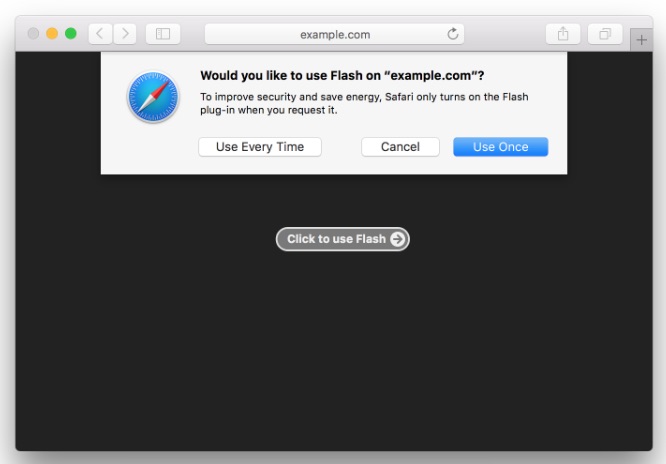
Adobe Flash may have already had the last nail driven into its coffin. Now Apple is shoveling on the dirt: The computer giant is joining Google and Mozilla in dropping the beleaguered software.
In a blog post today, Apple said that upcoming versions of Safari, scheduled to ship this fall, will automatically disable the notoriously security flawed Flash in favor for the safer HTML5. Flash can still be used on a web page if it’s necessary by enabling it, as seen below.

Not only is HTML5 safer compared to Flash, but Apple explains that using it delivers “improved performance and battery life.” It’s a move perhaps long time coming since Apple was the leader in forbidding Flash by not allowing it to load on iOS for iPads and iPhones.
Apple’s moves shadows that of Amazon and Mozilla, which have denounced Flash. Google also made a similar move last month announcing when it announced its more popular browser Chrome will be blocking Flash for all but 10 websites by the end of the year.
More in Media

In Graphic Detail: The scale of the challenge facing publishers, politicians eager to damage Google’s adland dominance
Last year was a blowout ad revenue year for Google, despite challenges from several quarters.

Why Walmart is basically a tech company now
The retail giant joined the Nasdaq exchange, also home to technology companies like Amazon, in December.

The Athletic invests in live blogs, video to insulate sports coverage from AI scraping
As the Super Bowl and Winter Olympics collide, The Athletic is leaning into live blogs and video to keeps fans locked in, and AI bots at bay.





